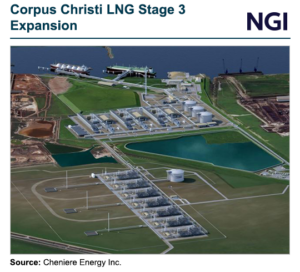Regulatory | NGI All News Access
Trump’s 2020 Energy Industry Pitch a Replay of 2016; GOP Doubles Down on Deregulation
© 2024 Natural Gas Intelligence. All rights reserved.
ISSN © 2577-9877 | ISSN © 2158-8023 |

Infrastructure
The outlook for added feed gas demand in the coming months is beginning to firm, portending a possible tight supply balance next year. Earlier in the week, Cheniere Energy Inc. asked FERC for permission to connect the first train of its Stage 3 expansion at Corpus Christi to power and gave an update of its…
April 24, 2024Energy Transition
Markets
By submitting my information, I agree to the Privacy Policy, Terms of Service and to receive offers and promotions from NGI.